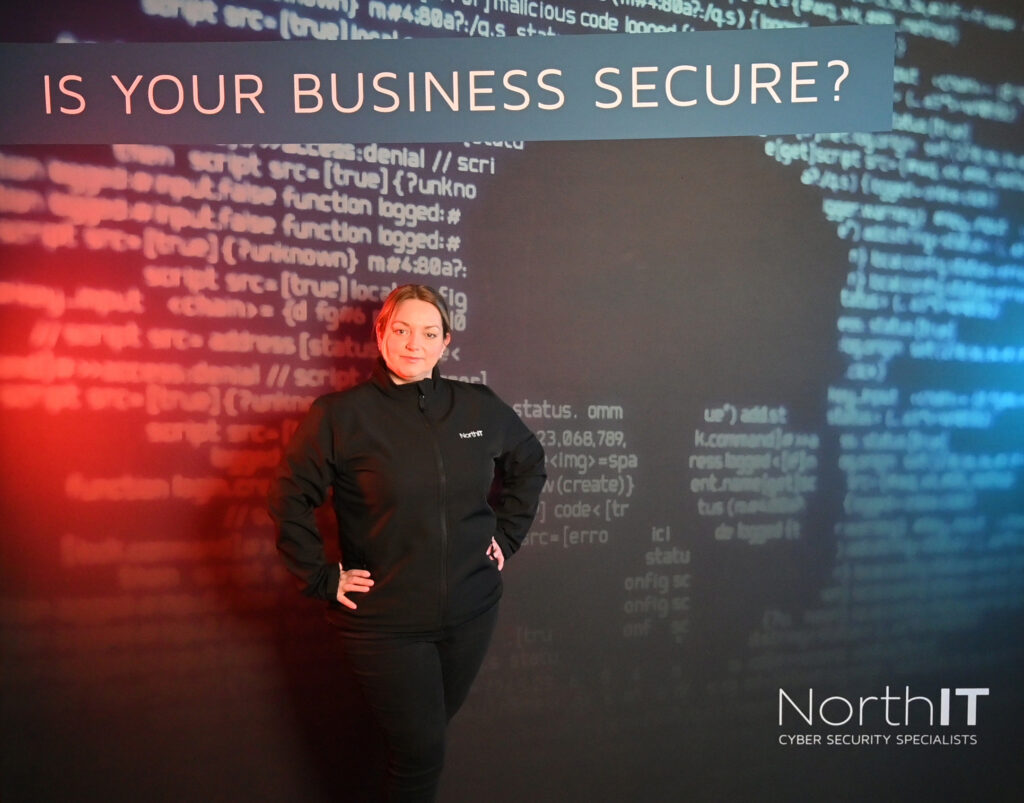6 Top Tips for Securing your Cybersecurity
In today’s digital age, cybersecurity has become a paramount concern for organisations of all sizes. With the increasing frequency and sophistication of cyber threats, protecting sensitive data and maintaining the trust of customers are essential.
We at North IT have listed 6 ways in which organisations can help secure their cybersecurity:
- Cyber Security Training
First things first! Your team is the first line of defence when it comes to cyber security. Make sure your team are aware of the threats that they may encounter in your line of work such as phishing attacks, malware infections and social engineering tactics.
Anyone who does anything online should have cyber security training, even if you only send emails.If you look around, you can get affordable training that will run through the basics of what to look out for and how to manage your cyber security. - Adopt a Password Policy
Do you have a password policy? If not, why not?
Having a password policy will ensure that everyone in the organisation is using complex passwords that are not easily hacked. Password1234! just doesn’t cut it anymore. As an organisation setting up multi factor authentication (MFA) is also a good idea to further protect your information from being hacked.
Note: We need a password for everything these days, having the same password for multiple things is easily hackable, no matter how complicated the password.
On a personal level, it may be a good idea to get a password manager. There are plenty of password managers out there that are safe an easy to use. If you can remember just one master password, you can have a vault of complex passwords for everything from your online bank account to your gym app login. - Protect your Wi-Fi
A little-known fact about Wi-Fi is that it can be hacked and used to gather personal information. As an organisation, make sure you change the default Wi-Fi password to a really strong password, and never let guests use the same network.
Set up a guest network with its own password. I think it goes without saying that employees should not do any work for the organisation via the guest network. - Backup your Data
Backup your critical data to an external location, this way you will always have a safe copy to restore from if a cyber-attack should happen. - Update Software and Systems
Regularly updating software and systems is crucial for addressing known vulnerabilities and patching vulnerabilities that could be exploited by cyber attackers. Implement a proactive patch management strategy to ensure that all software, operating systems and applications are promptly updated with the latest security patches and updates.Additionally, consider leveraging automated patch management tools to streamline the patching process and minimise the risk of overlooking critical updates. By keeping software and systems up-to-date, businesses can significantly reduce their exposure to known security vulnerabilities. - Pen Testing
Consider regular penetration testing (pen-test). This means professional ethical hackers will use the same techniques that criminals would use. The aim of this is to identify weaknesses in the organisation’s network that hackers may be able to exploit.
If you have any questions on how to secure your organisation, go to www.northit.co.uk and talk to us about it.

